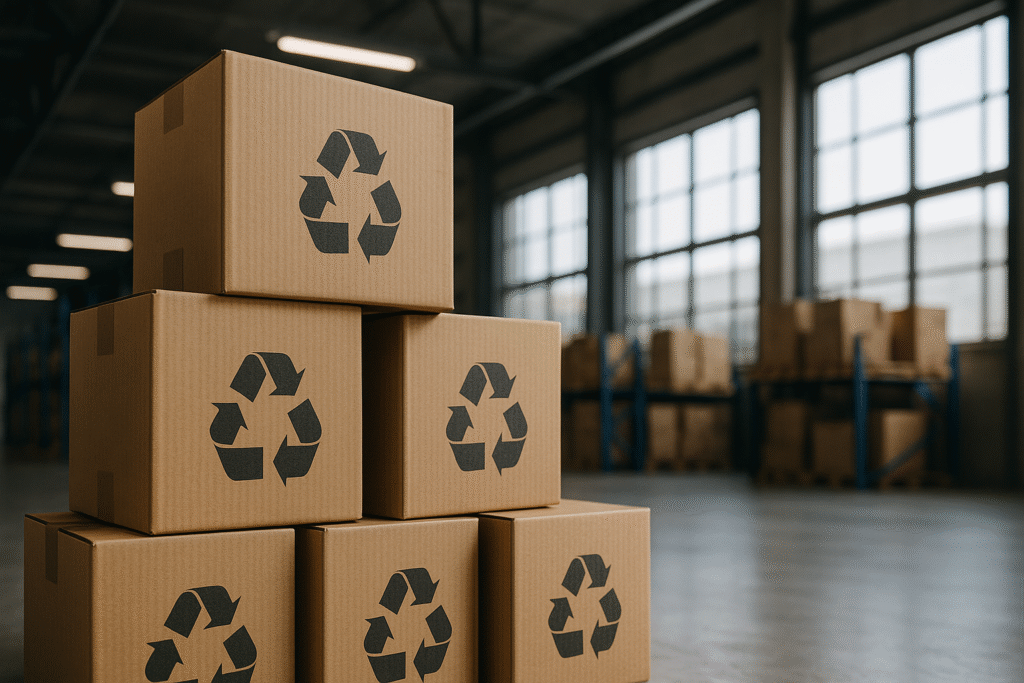Sustainable packaging in global imports
The rise of sustainable packaging is one of the strongest trends reshaping imports in 2025. Companies face pressure from regulators, consumers, and partners to reduce environmental impact. Therefore, packaging decisions go beyond protection and cost—they now influence competitiveness and market access.
Eco-friendly materials in international trade
One important development is the adoption of biodegradable and compostable packaging made from plant-based sources. For example, importers in the food and pharmaceutical industries are turning to compostable containers to meet European Union standards. In addition, recyclable packaging is becoming common because it reduces waste and lowers freight costs.
Smart packaging innovations
Another emerging practice is the use of smart packaging technologies. These solutions monitor conditions such as temperature, humidity, and shock during transport. As a result, importers can guarantee product quality and reduce disputes with buyers. Moreover, transparency builds stronger commercial relationships and increases trust.
Economic and strategic benefits for importers
Although eco-friendly materials may initially cost more, they generate savings over time. Reduced shipping weight, fewer damaged products, and compliance with stricter regulations offset the investment. Importers using these solutions are also better positioned to negotiate with partners who value sustainability.
Why sustainable packaging matters today
Sustainability is no longer a secondary concern. It is becoming a requirement for accessing key international markets. Importers who adapt gain long-term resilience and a competitive advantage. By contrast, companies that ignore this transition risk losing clients and facing regulatory barriers.
Source: Packaging Europe

